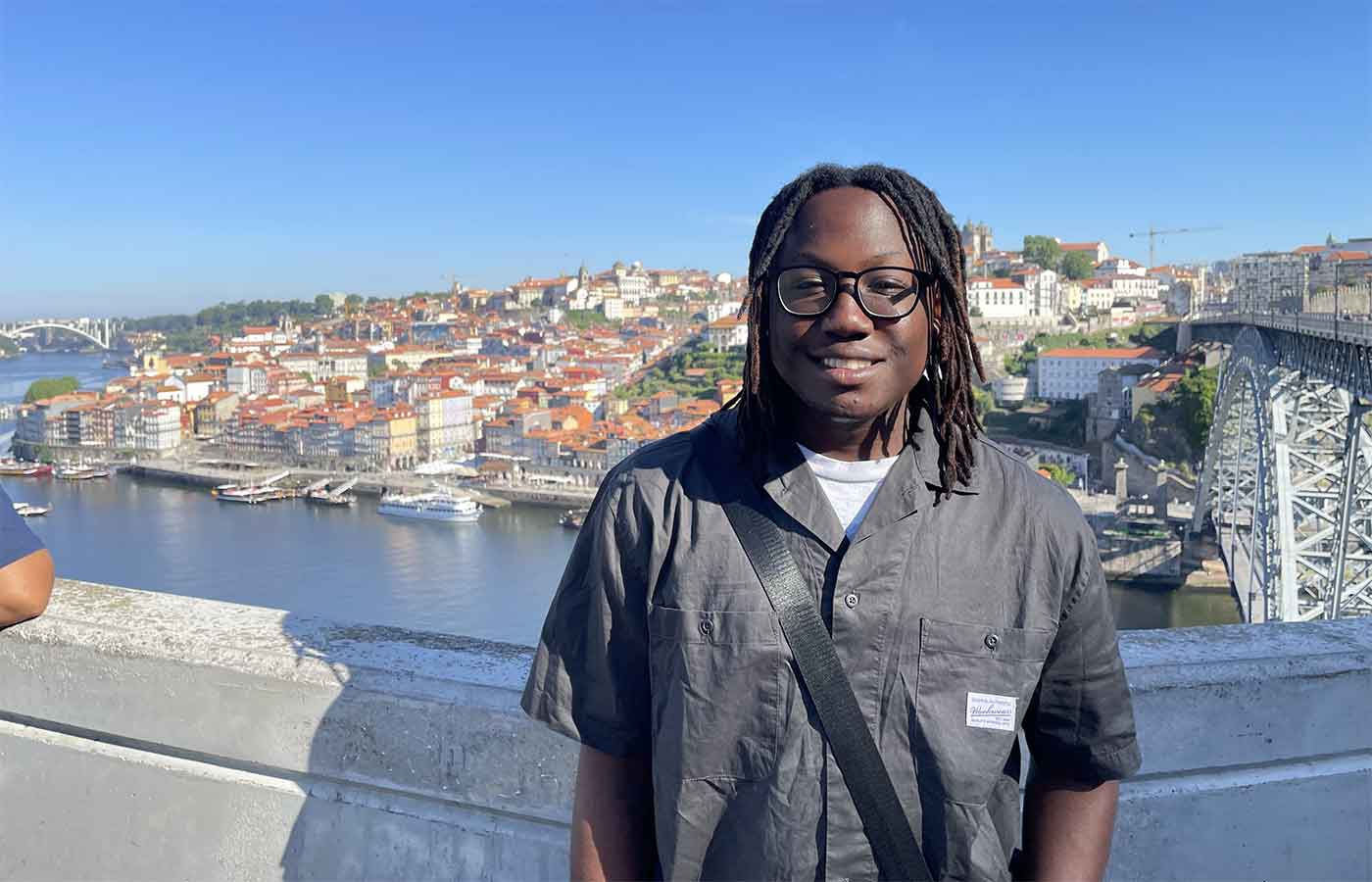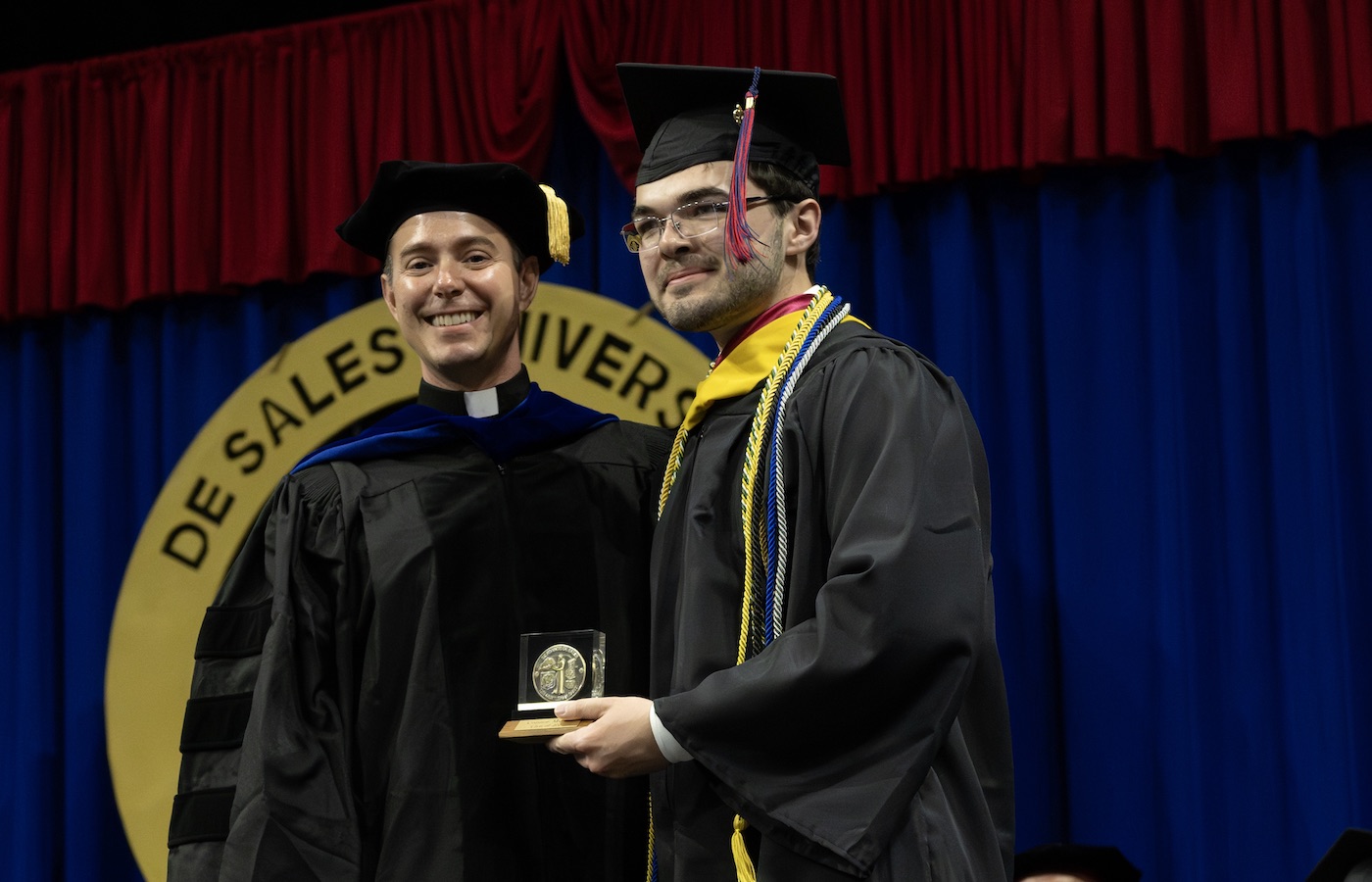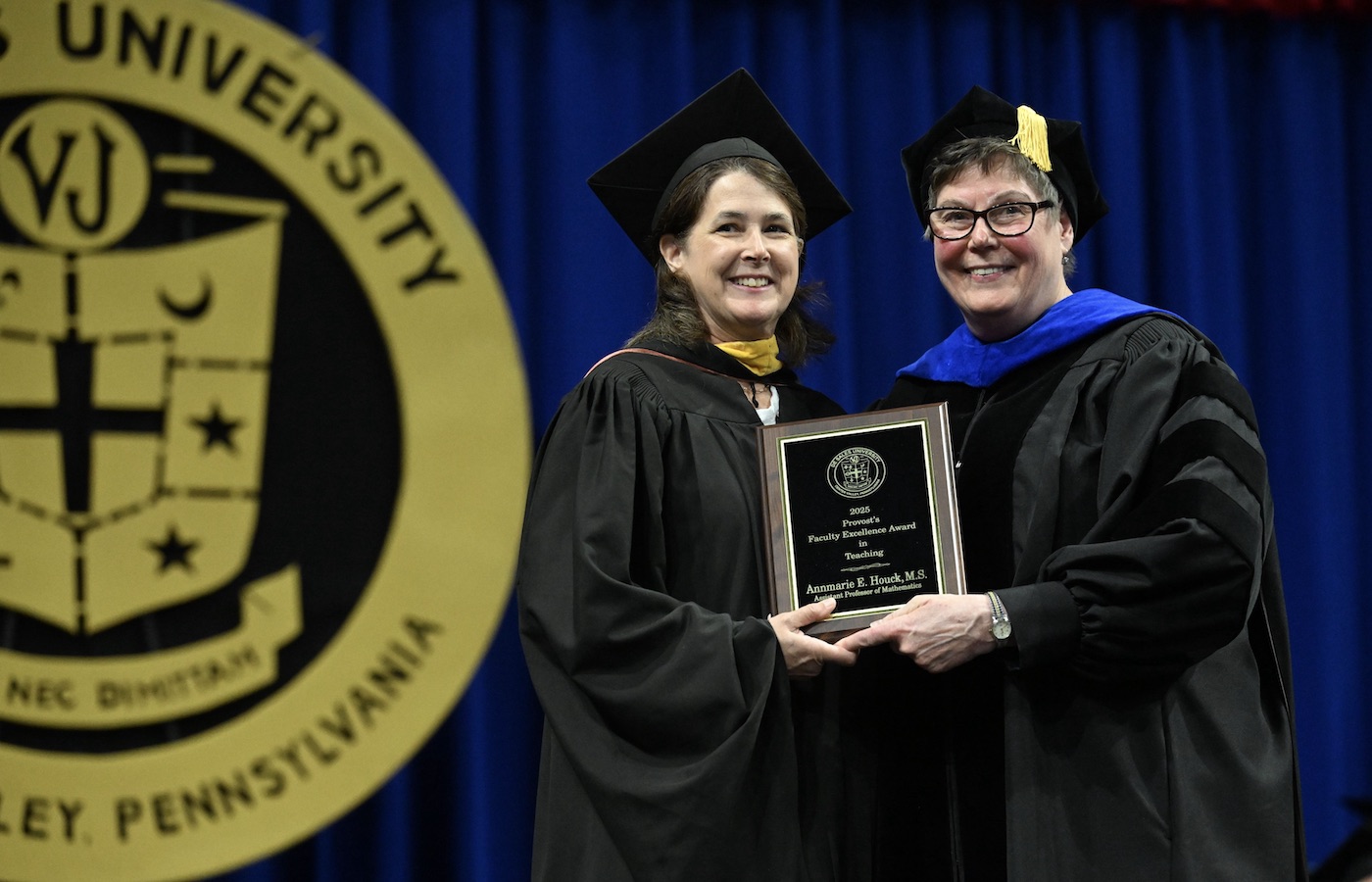Inside the Opresko Lab: How a DeSales Alumna is Redefining Cancer Research
Patty Opresko ’94 spends much of her day thinking about something that’s too small to see with the naked eye.
“I’m fascinated by DNA,” she says. For most of us, our understanding of DNA is based on faded recollections from long-ago classroom lectures. Maybe we can still summon the basics from the cobwebs of memory when there’s a trivia question on the line—just hope Opresko isn’t playing for the rival team.
She hasn’t forgotten her high school introduction to the wonders of DNA and RNA, which now serve as the prologue to a career as a scientist and researcher. Her work may very well be a game-changer in the fight against aging-related diseases and cancer.
Opresko’s resume is an impressive one. Highlights include authoring more than 95 peer-reviewed publications for distinguished journals; serving as a respected professor, lecturer, and mentor at the University of Pittsburgh; co-leading the UPMC Hillman Cancer Center’s Genome Stability Program; and holding the position of vice president of the Environmental Mutagenesis and Genomics Society. She has earned numerous accolades and awards and even has a lab named after her.
But Opresko (née Vargo), a native of Chester, New Jersey, who moved to the Quakertown area as a teenager, remembers a time when, like a lot of young people, she was just trying to figure out what she wanted to do with her life.
Thanks to that DNA-related epiphany in high school, she knew she wanted to study biology and chemistry at DeSales, then Allentown College.
“The size of the campus appealed to me, and I enjoyed talking with the faculty I met. It seemed that I would be able to get a lot of one-on-one interactions rather than some of these large universities where you attend a class of 300.” -Patty Opresko ’94
Looking back now, she has great appreciation for a professor who was somewhat of a stickler for requiring students to always show their work. “That foundation, those fundamentals are something I really carried with me all throughout my entire career,” Opresko says.
Following her graduation from DeSales in 1994 with a Bachelor of Science in chemistry and biology, she stayed on the school track, pursuing a Ph.D. in biochemistry and molecular biology from Penn State University’s College of Medicine in Hershey. She completed a postdoctoral fellowship at the National Institutes of Aging in Baltimore before landing at Pitt in 2005, where she’s been ever since.
“Research is the bulk of my job,” says Opresko. And naturally, a major focus remains the study of DNA; or, more specifically, the study of telomeres, which might be described as something akin to the caps on shoelaces. A telomere protects the end of a chromosome.
Opresko and her fellow researchers are exploring how genetic and environmental factors can damage telomeres, and the medical consequences tied to that deterioration.
“The telomeres are really right at the interface of cancer and aging,” she says. “They can put the brakes on our cells and tell them to stop dividing, but if all the controls are all out of whack in a pre-cancer cell, then those cells are able to turn on an enzyme that keeps them going.”
Opresko hopes this work will lead to breakthroughs in the prevention and treatment of cancer in the coming years. But there are no guarantees, of course. “Science can be good days, bad months,” she says. “It’s a lot of hard work. There are important discoveries along the way, but they don’t happen every day.”
Luckily, tenacity seems to be woven into her DNA. Opresko considers herself a constant student with an insatiable thirst for knowledge. “It’s a demanding job but it’s very rewarding,” she says.
Opresko is aware of the role she can play in inspiring the next generation of scientists. That might even include her own 12-year-old daughter, whom she is raising with her husband, fellow DeSales alum Stephen G. Opresko '93. They married on campus in 1997.
Their daughter already has notched a science fair victory; she recently accompanied her mother to the annual meeting of the American Chemical Society in San Francisco and attended her lecture. “The smile on her face after my talk during the applause was priceless!” Opresko says.



